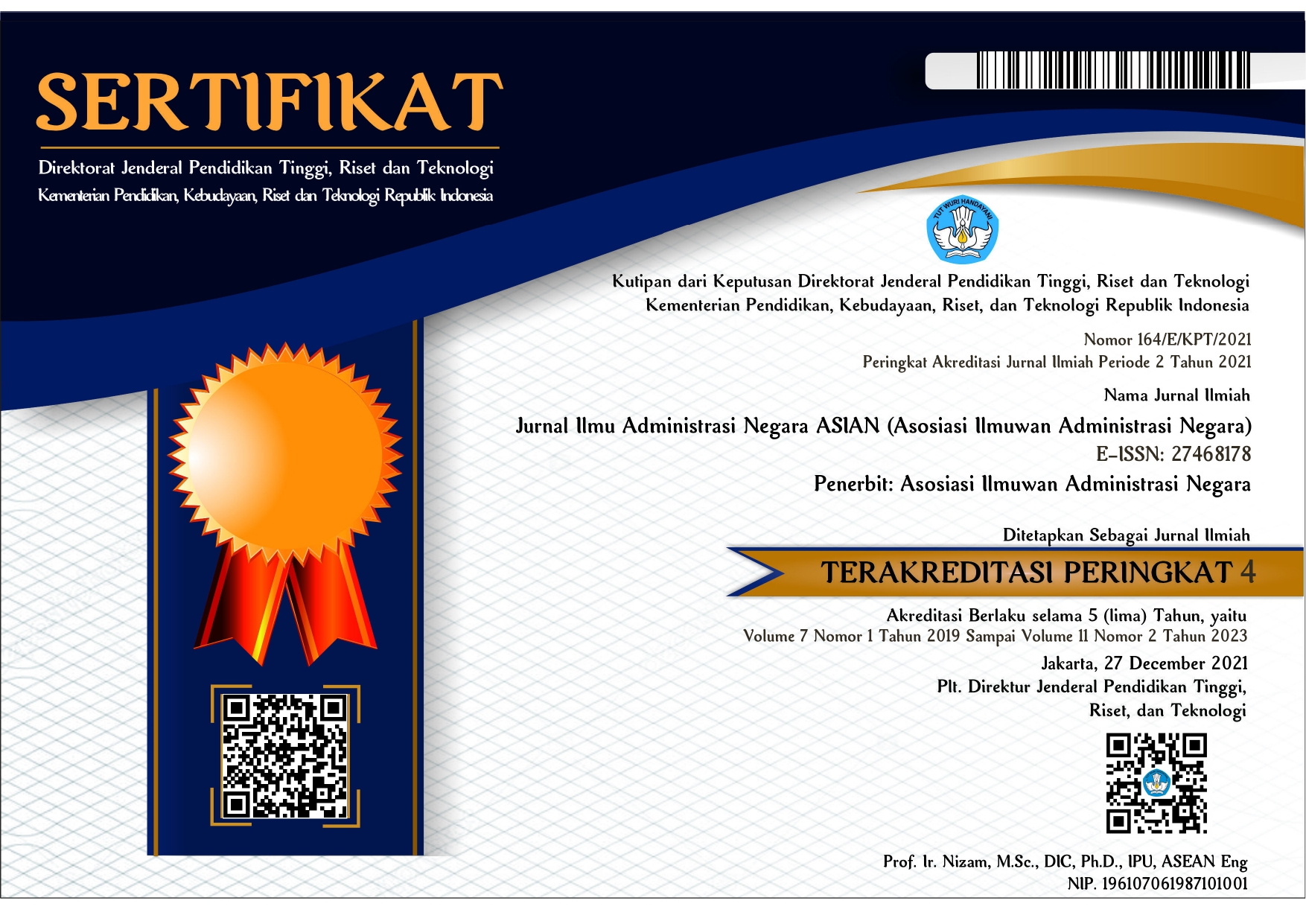Pengembangan Wisata Halal Pemandian Alam Banyubiru di Kabupaten Pasuruan dalam Meningkatkan Ekonomi Lokal
 Abstract views: 584
,
Abstract views: 584
,
 PDF downloads: 738
PDF downloads: 738
Abstract
Halal tourist destinations are currently the target of many tourists, therefore the Pasuruan Regency government is developing halal tourism in the Banyubiru natural bath located in Sumber Rejo Village, Winongan District, Pasuruan Regency. The development of halal tourism is carried out to further develop a unique and better tourism industry, and benefit the local community's economy. This research was conducted to describe the development of halal tourism in the natural baths of Banyubiru in improving the local community's economy. The research method used is descriptive qualitative research method. Data collection techniques were carried out by field observations, interviews, and documentation. The results of the study show that the development of halal tourism in improving the local community's economy is by developing facilities and infrastructure in Banyu Biru tourism, developing halal tourism in providing new jobs, developing halal tourist attractions. In tourism development will experience the impact of tourism development such as in terms of economic, social and cultural. The supporting factors for tourism development are community participation and a unified community while the inhibiting factors are inadequate road access and public transportation, lack of public awareness and the absence of investors as well as the emergence of similar tourism. The aim of developing halal tourism is also to add new jobs as well as attract many tourists to tour the Banyubiru natural baths.
Downloads
References
Al-Qardhawi, Y. (1994). Bagaimana berinteraksi dengan al-Sunnah.
Djakfar, M. (2017). Pariwisata halal perspektif multidimensi : peta jalan menuju pengembangan akademik & industri halal di Indonesia.
El-Gohary, H. (2016). ‘Halal Tourism, Is It Really Halal?’ Tourism Management Perspectives 19. https://doi.org/10.1016/j.tmp.2015.12.013.
Fatwa MUI. (2016). Fatwa MUI No. 108/DSN-MUI/X/2016.
Happy, M., & Bahar, H. (2002). Pengantar Pariwisata. Alfabeta.
Kurniawan, F., Soeprijanto, A., Laksana Guntur, H., Wardhana, M., Abadi, I., & Kegiatan, A. (2018). Pemetaan Potensi Wisata Halal Di Kabupaten Sumenep, Jawa Timur, Indonesia. Jurnal Ekonomi & Keuangan Islam Dinar, 6(2), 1–12. https://doi.org/10.21107/dinar
Moloeng, L. . . (2000). Metodologi Penelitian Kualitatif.
Nugrahani, F. (2014). Metode Penelitian Kualitatif dalam Penelitian Pendidikan Bahasa (Vol. 1, Issue 1).
Pasuruan, P. K. (2022). Matangkan Konsep Wisata Halal, Pemkab Pasuruan Terus Benahi Infrastruktur Di Banyubiru.
Rogers, E. M. (1976). Komunikasi Pembangunan Pendekatan Terpadu.
Sammeng, A. M. (2001). Cakrawala Pariwisata. Balai Pustaka.
Siagian, P. (2005). Administrasi Pembangunan. PT. Bumi Aksara.
Strauss, A., & Corbin, Y. (2007). Dasar-dasar Penelitian Kualitatif. Pustaka Belajar.
Undang-Undang RI. (2009). Undang-Undang Republik Indonesia Nomor 10 tahun 2009 Tentang Kepariwisataan.
Wuryasti, F. (2013). Wisata Halal, Konsep Baru Kegiatan Wisata di Indonesia. Detiktravel.
Yoeti, O. A., & Pribadi, B. (2008). Ekonomi pariwisata : introduksi, informasi, dan implementasi. https://opac.perpusnas.go.id/DetailOpac.aspx?id=408576#
Copyright (c) 2023 Jurnal Ilmu Administrasi Negara ASIAN (Asosiasi Ilmuwan Administrasi Negara)

This work is licensed under a Creative Commons Attribution-ShareAlike 4.0 International License.
Authors who publish with this journal agree to the following terms:
1. Copyright on any article is retained by the author(s).
2. The author grants the journal, right of first publication with the work simultaneously licensed under a Creative Commons Attribution License that allows others to share the work with an acknowledgment of the work’s authorship and initial publication in this journal.
3. Authors are able to enter into separate, additional contractual arrangements for the non-exclusive distribution of the journal’s published version of the work (e.g., post it to an institutional repository or publish it in a book), with an acknowledgment of its initial publication in this journal.
4. Authors are permitted and encouraged to post their work online (e.g., in institutional repositories or on their website) prior to and during the submission process, as it can lead to productive exchanges, as well as earlier and greater citation of published work.
5. The article and any associated published material is distributed under the Creative Commons Attribution-ShareAlike 4.0 International License








